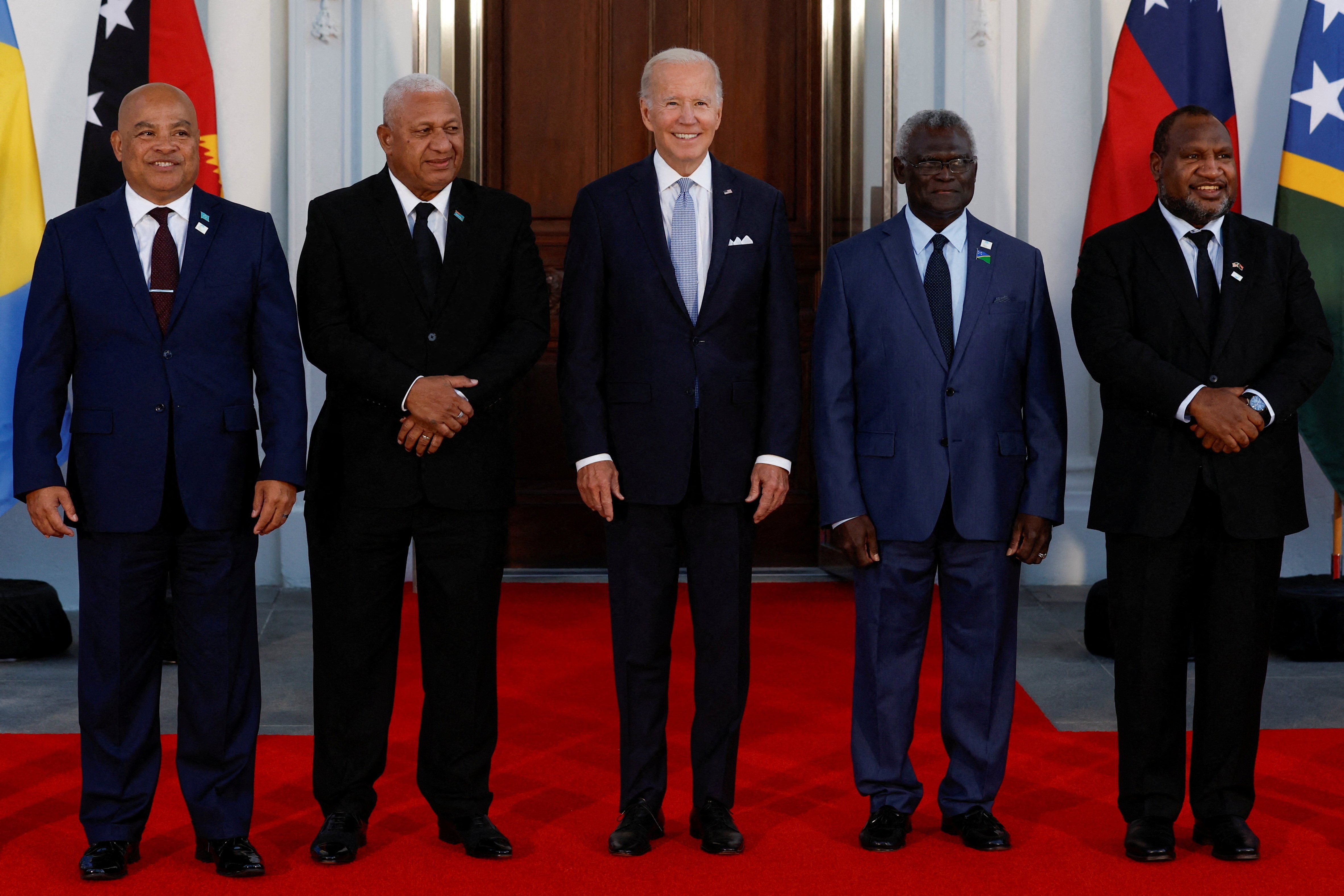Leaders of over 20 Pacific Island nations will arrive in Washington on Monday for a two-day US-Pacific Island Forum Summit, the second such gathering in two years.
While the meeting officially focuses on climate change, economic growth, and sustainable development, China’s growing clout in the region also looms large. The United States has been accused of abandoning the South Pacific since the end of the Cold War, creating a vacuum that China has aptly filled. As of 2021, Chinese trade with the region stood at $5.3 billion, up from just $153 million in 1992. China has built infrastructure and lent money to a number of Pacific nations, including to the small archipelago of Tonga, now in debt $286 million to China for a series of rebuilding projects.
But nowhere has China’s influence campaign been more successful than in the Solomon Islands. In April 2022 its President, Manesseh Sogavare, signed the first South Pacific security pact with China, authorizing Chinese navy ships to make routine port visits to the Solomons. In July 2023 Sogavare paid a state visit to Beijing, inking a two-year plan for police cooperation. Back home, Sogavare stands accused of using Chinese funds to buy political support and silence dissent; he will be notably absent at this week’s gathering in Washington.
In response, Biden is reopening the American embassy in the Solomons and also plans to establish diplomatic relations with the Cook Islands and Niue.
Why play tug-of-war over these small nations? Diplomatically, every South Pacific nation has an equal vote in forums like the United Nations. China has already convinced several to drop their recognition of Taiwan in favor of Beijing. Economically, they control access to fishing and seabed minerals over a vast territory. Militarily, they are strategically positioned and could be crucial launching pads in any future conflict over Taiwan. Micronesia, for example, lies within striking distance of the American military base in Guam.
But it’s not just the big powers who are jostling for power in the region: India, Indonesia and South Korea are also seeking influence to maintain access to global shipping channels.
